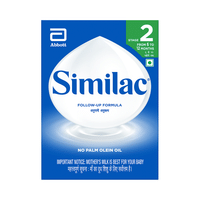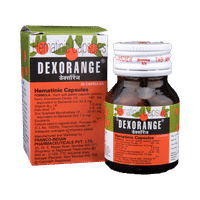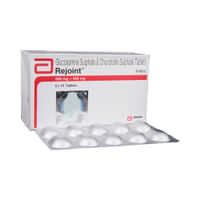ANACOX-PLUS 450MG/300MG TABLET

food interaction for Anacox-Plus
alcohol interaction for Anacox-Plus
pregnancy interaction for Anacox-Plus
lactation interaction for Anacox-Plus
food
alcohol
pregnancy
lactation
ANACOX-PLUS 450MG/300MG TABLET is to be taken empty stomach.
Avoid ANACOX-PLUS 450MG/300MG TABLET with tyramine-rich food such as cheese, smoked fish, meats and some types of beer.
Avoid ANACOX-PLUS 450MG/300MG TABLET with tyramine-rich food such as cheese, smoked fish, meats and some types of beer.
CAUTION
Consuming alcohol while taking ANACOX-PLUS 450MG/300MG TABLET may cause symptoms such as flushing, increased heart beat, nausea, thirst, chest pain and low blood pressure (Disulfiram reaction).
UNSAFE
ANACOX-PLUS 450MG/300MG TABLET may be unsafe to use during pregnancy. Although there are limited studies in humans, animal studies have shown harmful effects on the developing baby. Your doctor will weigh the benefits and any potential risks before prescribing it to you. Please consult your doctor.
CONSULT YOUR DOCTOR
ANACOX-PLUS 450MG/300MG TABLET is safe to use during breastfeeding. Human studies suggest that the drug does not pass into the breastmilk in a significant amount and is not harmful to the baby.
SAFE IF PRESCRIBED
SALT INFORMATION FOR Anacox-Plus
Rifampicin(450mg)
Uses
Rifampicin is used in the treatment of tuberculosis and leprosy.
How it works
Rifampicin is an antibiotic. It works by inactivating a bacterial enzyme (RNA-polymerase) which is required by bacteria to make essential proteins and to reproduce.
Common side effects
Low blood platelets, Dizziness, Vomiting, Nausea, Fever, Abdominal pain, Skin rash, Hemolytic anemia, Acute renal failure, Hepatitis (viral infection of liver), Pseudomembranous colitis, Pseudoadrenal crisis, Toxic epidermal necrolysis, Stevens-Johnson syndrome, Drug allergy, Headache, Chills, Paradoxical reactions, Increased aspartate aminotransferase, Increased alanine aminotransferase, Increased bilirubin in the blood, Decreased white blood cell count (lymphocytes), Diarrhea, Cutaneous reactions, Renal insufficiency, Anaphylactic reaction, Psychotic disorder, Muscle damage, Agranulocytosis (deficiency of granulocytes in the blood), Disseminated intravascular coagulation, Blood in urine
Isoniazid(300mg)
Uses
Isoniazid is used in the treatment of tuberculosis. It is also used to treat inactive (latent) TB .
How it works
Isoniazid is an antibiotic. It works by killing the bacteria that causes tuberculosis.
Common side effects
Peripheral neuropathy (tingling and numbness of feet and hand), Hepatitis (viral infection of liver), Hemolytic anemia, Aplastic anemia, Agranulocytosis (deficiency of granulocytes in the blood), Skin rash, Lethargy, Psychosis, Joint pain, Anemia (low number of red blood cells), Optic neuritis, Deafness, Ringing in ear, Vertigo, Fever, Hypoglycemia (low blood glucose level), Breast enlargement in male, Toxic epidermal necrolysis, Increased white blood cell count (eosinophils), Increased liver enzymes, Pellagra, Drug-induced lupus syndrome, Constipation, Nausea, Pancreatic inflammation
SUBSTITUTES FOR Anacox-Plus
79 Substitutes
79 Substitutes
Sorted By
 Rs. 86.35pay 121% more per Tablet
Rs. 86.35pay 121% more per Tablet Rs. 125.20pay 92% more per Tablet
Rs. 125.20pay 92% more per Tablet Rs. 76pay 17% more per Tablet
Rs. 76pay 17% more per Tablet Rs. 58.10save 11% more per Tablet
Rs. 58.10save 11% more per Tablet Rs. 79pay 22% more per Tablet
Rs. 79pay 22% more per Tablet
Expert advice FOR Anacox-Plus
- Your doctor has prescribed Rifampicin to cure your infection and improve symptoms.
- It is best taken on an empty stomach. If you get an upset stomach, try taking it with small portions of food.
- Your urine, tears and other secretions may become orange-red in colour. Avoid using contact lenses since they may become discolored.
- Tell your doctor about all other medicines you are taking as Rifampicin can interact with many medicines.
- Avoid taking hormone-based birth control methods as Rifampicin may decrease their effectiveness.
- Tell your doctor immediately if you experience unusual tiredness or loss of appetite, fever or chills.
Frequently asked questions FOR Anacox-Plus
Rifampicin
Q. Is rifampin a penicillin/amoxicillin/sulfa drug?
No. Rifampin is an antibiotic commonly used in the treatment of tuberculosis and leprosy. It has a structure and mechanism of action different from penicillin or amoxicillin (amoxicillin belongs to the class of penicillin antibiotics). The chemical structure and mechanism of action of rifampin is different from sulfa drugs
Q. Is rifampin bacteriostatic or bactericidal?
Rifampin is a bactericidal drug. It acts by blocking the activity of a bacterial enzyme called DNA-dependent RNA polymerase which essential for important life processes in the bacteria, thereby killing the bacteria
Q. Is rifampin an inducer or inhibitor?
Rifampin is an inducer (increases activity) of an important liver enzyme system that is responsible for the final processing and elimination of several drugs from the body
Isoniazid
Q. Is Isoniazid an antibiotic?
Isoniazid is an antibiotic used in the prevention and treatment of tuberculosis or TB (a serious infection caused by bacteria that affects the lungs and in certain cases other parts of the body)
Q. Is Isoniazid chemotherapy/chemotherapy drug?
Isoniazid is a primary antibiotic used for treatment of tuberculosis. Do not confuse it with chemotherapy or chemo drugs used for the treatment of cancer
Q. Is Isoniazid bacteriostatic or bactericidal?
Isoniazid is a bacteriostatic antibiotic. It stops or suppresses growth of tuberculosis causing bacteria by interfering with the formation of protective outer covering (cell wall) which is essential for their growth






















